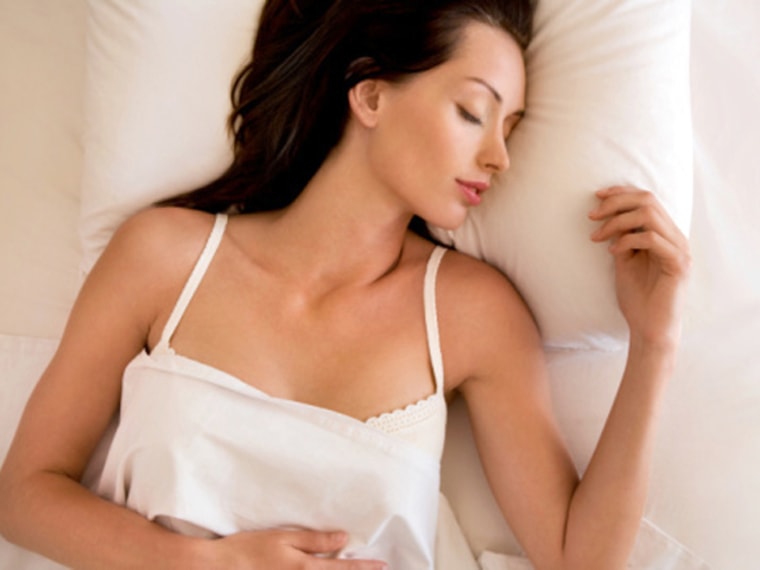When it comes to reminiscing about our most satisfying night in bed, most of us think about one thing and one thing alone: sweet, blissful sleep.
But how do we go about getting it? Read on for the top (non-medicinal) sleep aids, courtesy of Dr. James Walsh, executive director and senior scientist at St. Luke's Sleep Medicine and Research Center in St. Louis.
Exercise: According to Walsh, there's a fair amount of evidence that exercise produces a positive effect on sleep, however, it all depends on when you exercise. "Exercising within three or four hours of bedtime isn't good if you're having sleep problems or anticipating sleep problems," he says. Exercise on a regular basis, done earlier in the day, however, is a "strong recommendation."
Lights out: "We now have evidence that low levels of light -- even an alarm clock with a bright digital display -- will put off enough light that it can have a mild alerting effect," says Walsh, who compares low lights with consuming caffeine before bedtime. "You want to sleep in a dark place." Turn off the TV, put the phone on mute (and keep it face-down or in another room) and, yes, even unplug that nightlight.
White noise: People who live in a noisy neighborhood (think sirens, garbage trucks, late night partiers) may want to invest in a device that produces what Walsh calls "masking noise. "Some people keep a fan running which makes a less perceptive, less bothersome noise," he says.
Keep it cool: A fan can also help with keeping the bedroom from getting too hot, since extremes of temperature can also keep you awake. "You don't want it to be too warm or real, real cold," says Walsh. "However, a bit on the cooler side is generally better for most people."
Counting sheep: Walsh says there's no scientific evidence that mind games like this can help you nod off, however, anecdotally they do appear to work, primarily because they help shift your focus away from the worries of the day (your job, the economy, your little one's latest report card) and refocus it on something more benign. "One patient told me that when he found himself focusing on a negative thought, he would try to name every player on a baseball team," he says. "He found it very effective and generally fell asleep before he was able to think of all the players." Unfortunately, not being able to remember the players might be anxiety-producing to someone else, he adds, but overall if you can distract yourself from a negative thought with something neutral, it may help you fall asleep.
It’s Healthy Week! Learn the small steps you can take in your life to go healthy and "like" us on Facebook! And then follow up on Twitter at twitter.com/healthyatnbcu
More from NBC's Healthy Week series:
What to eat to get a good night's sleep
The worst sleep offenders and how to rid them
